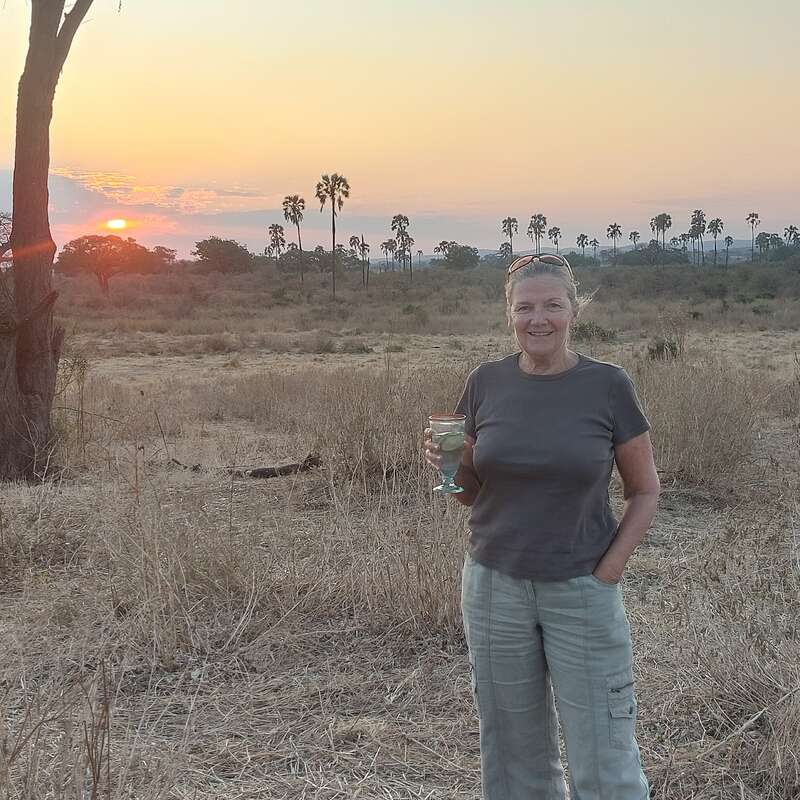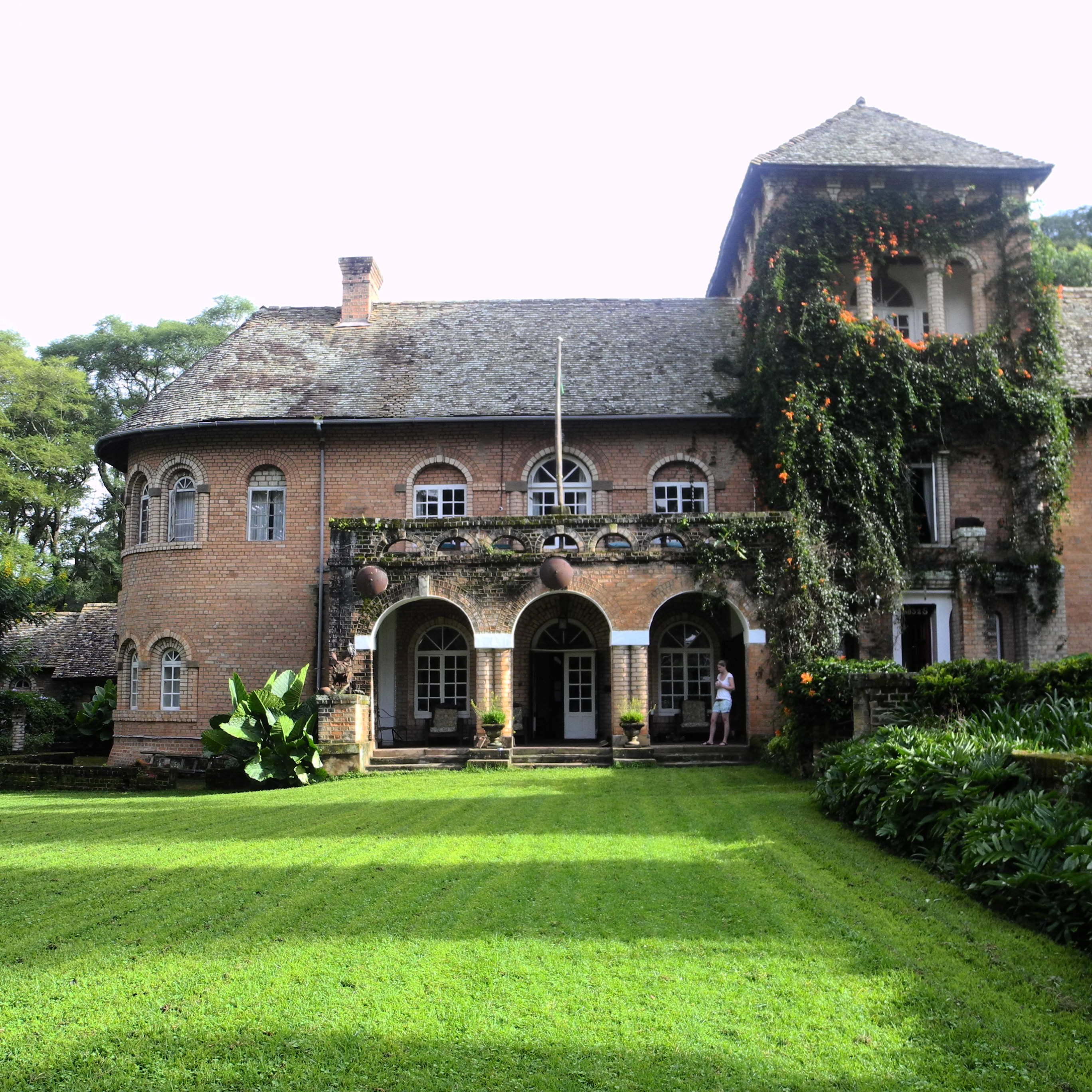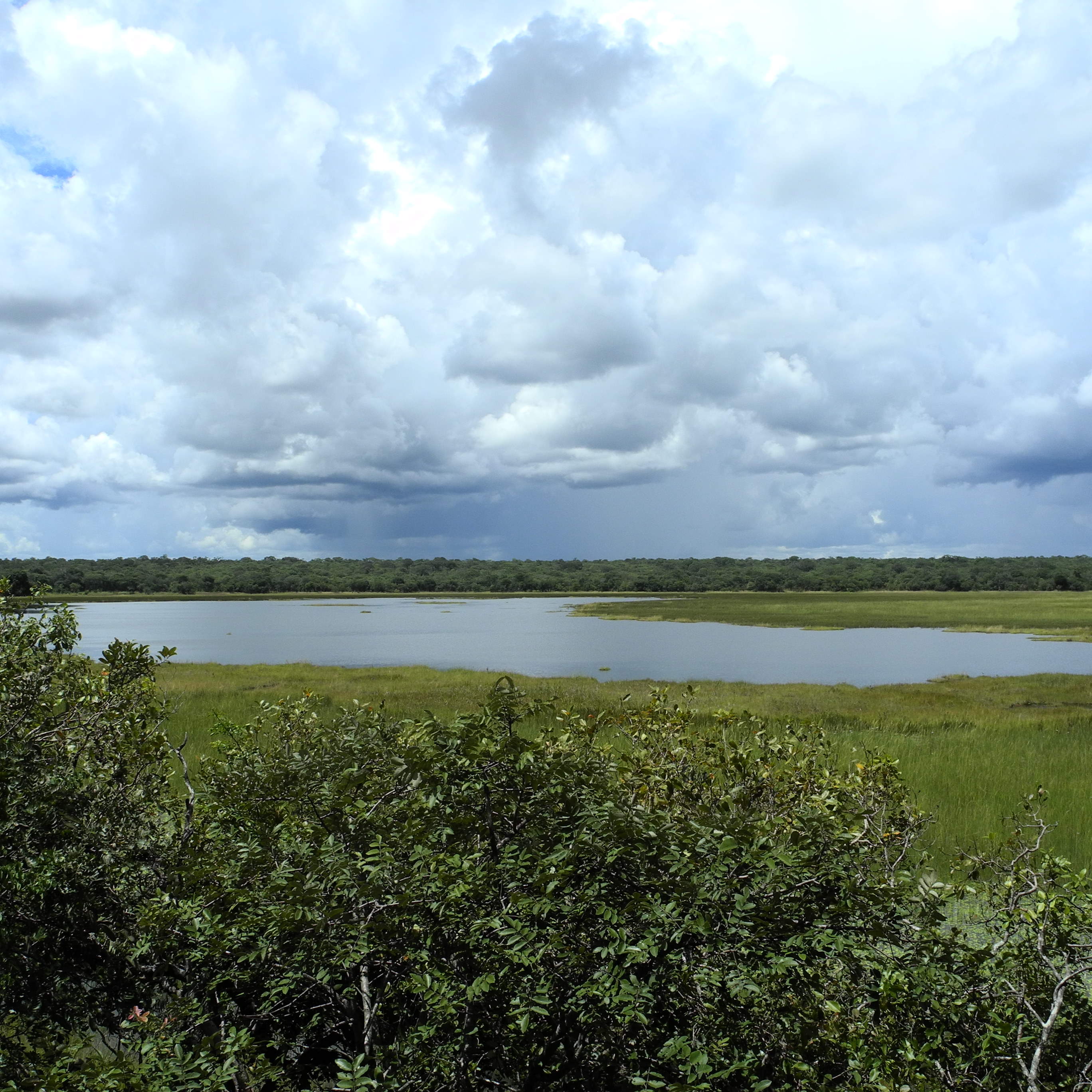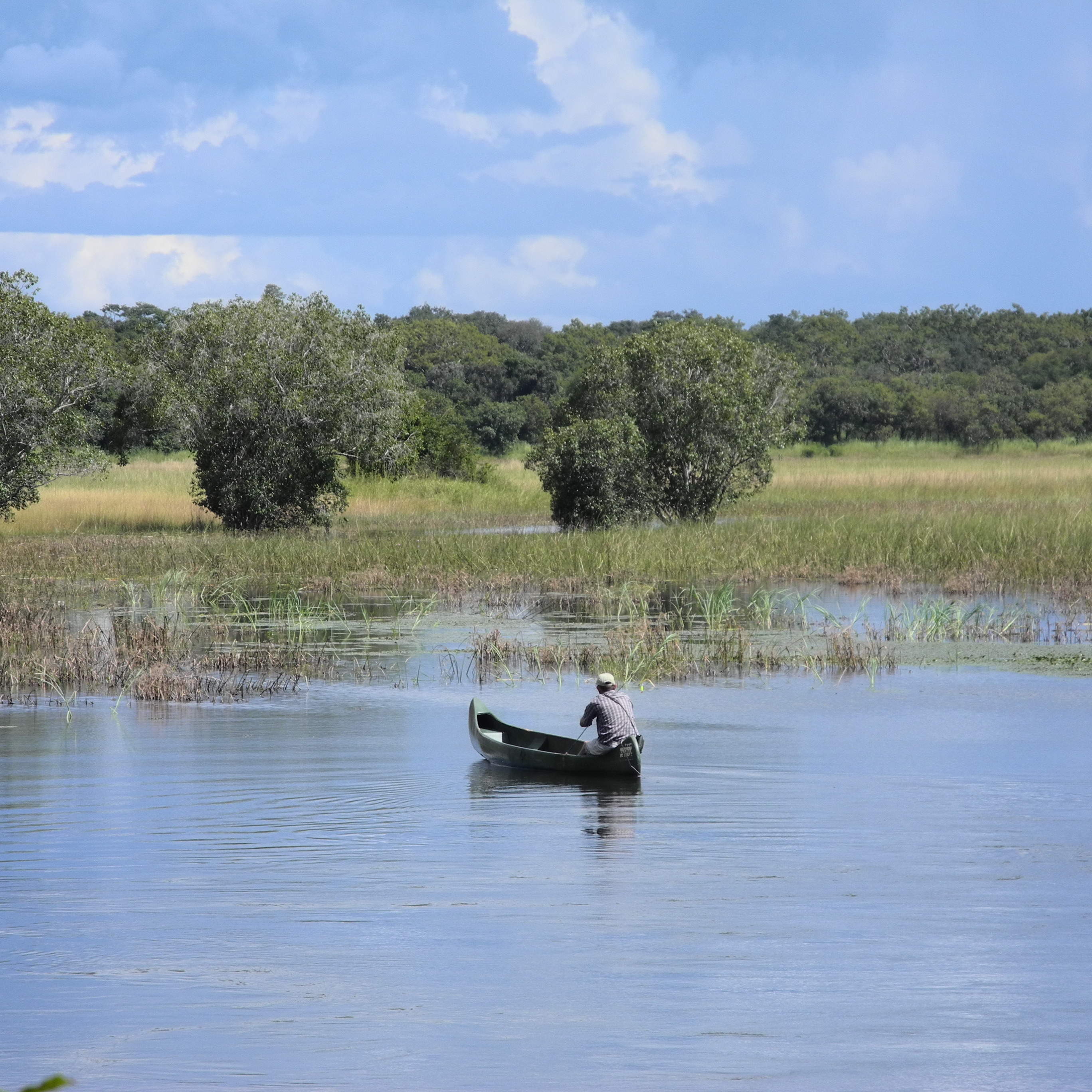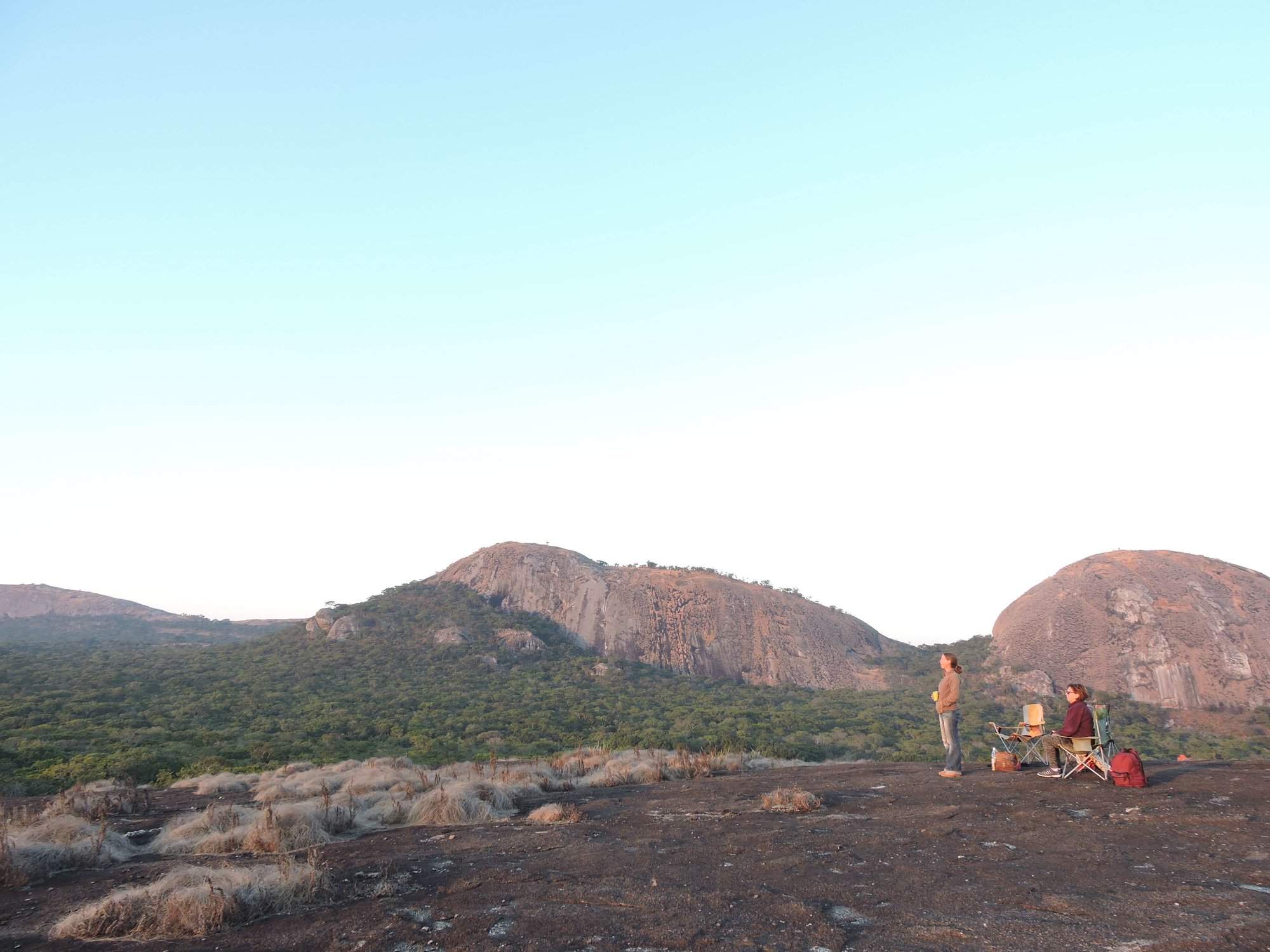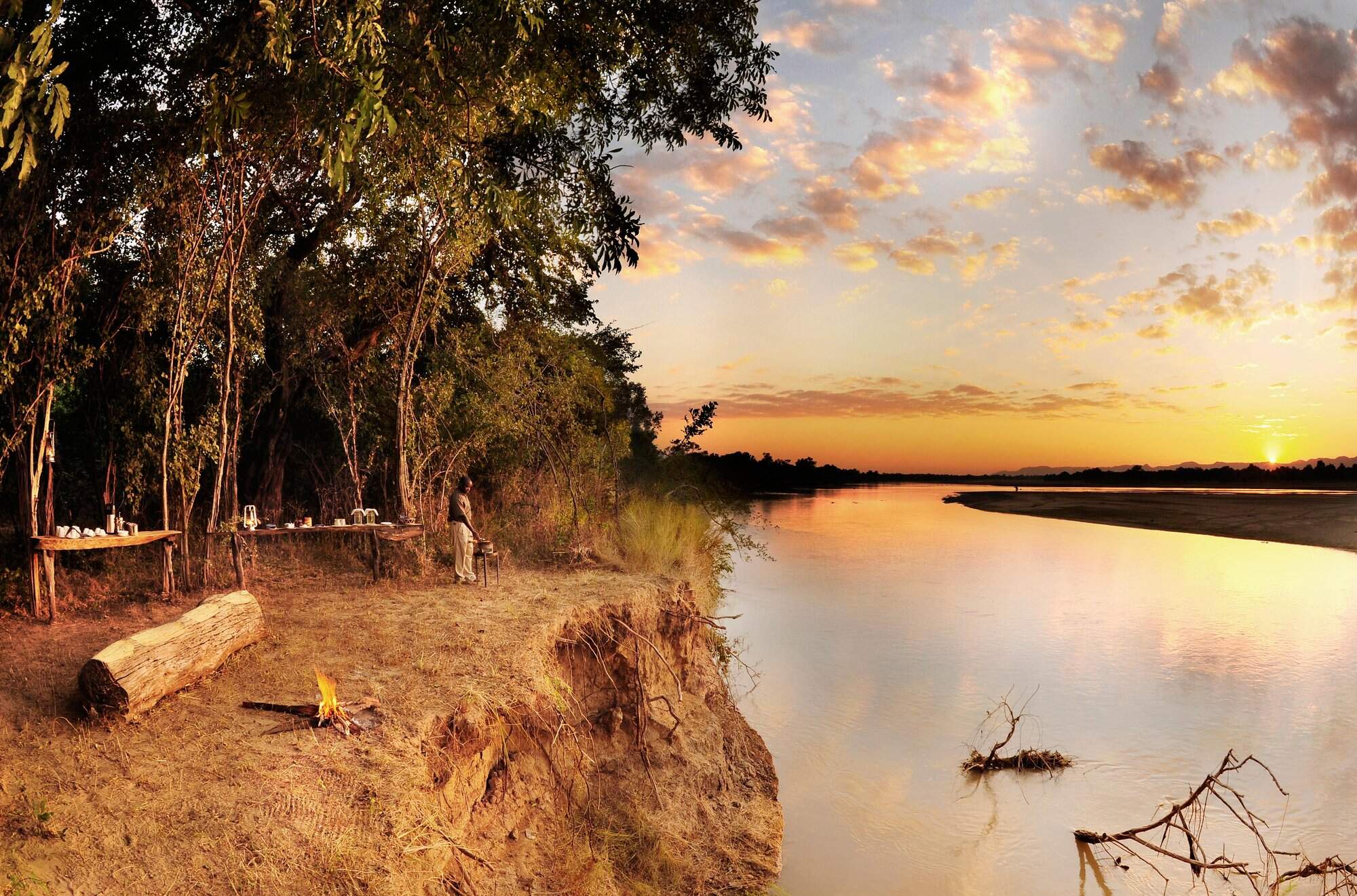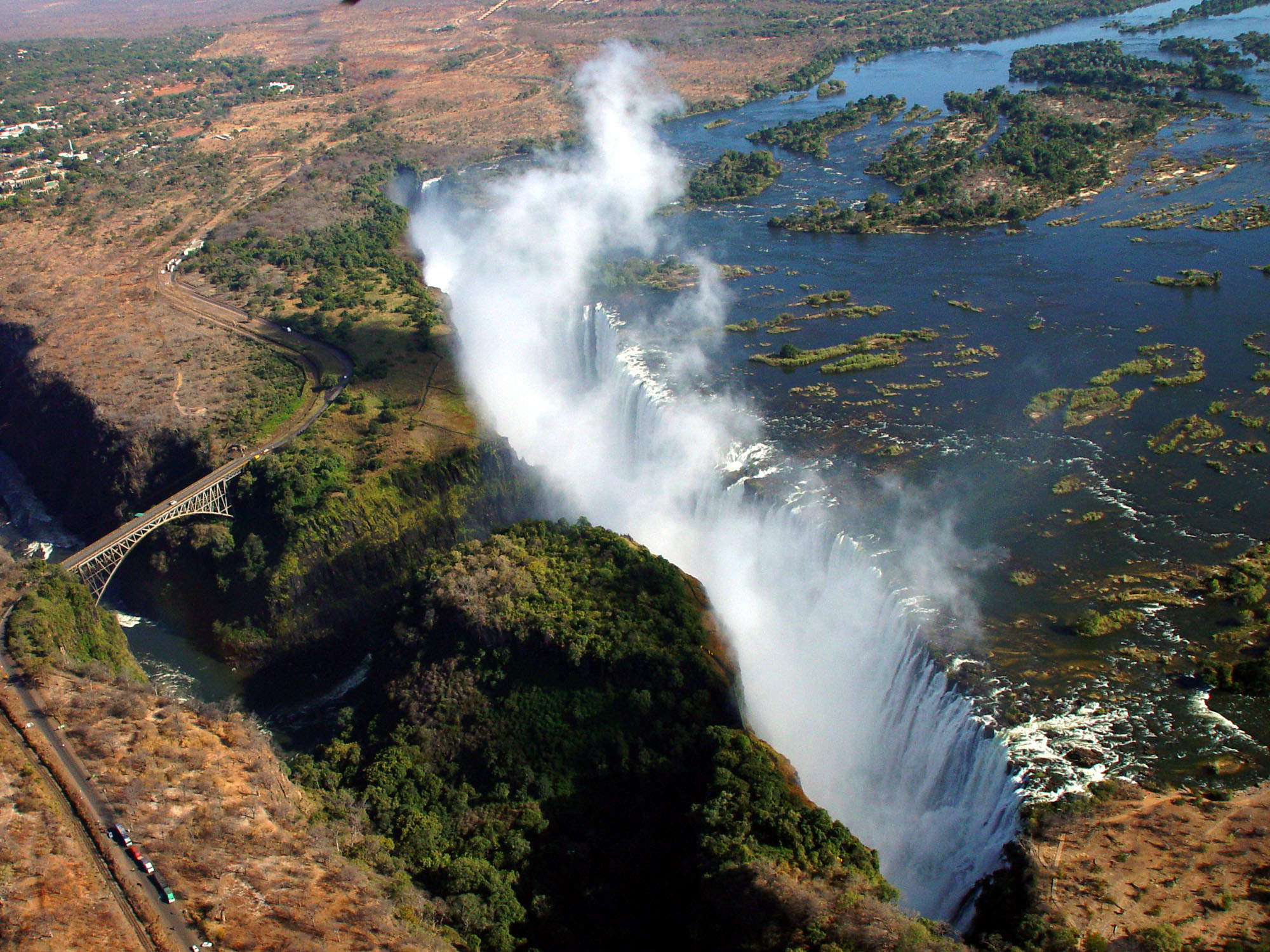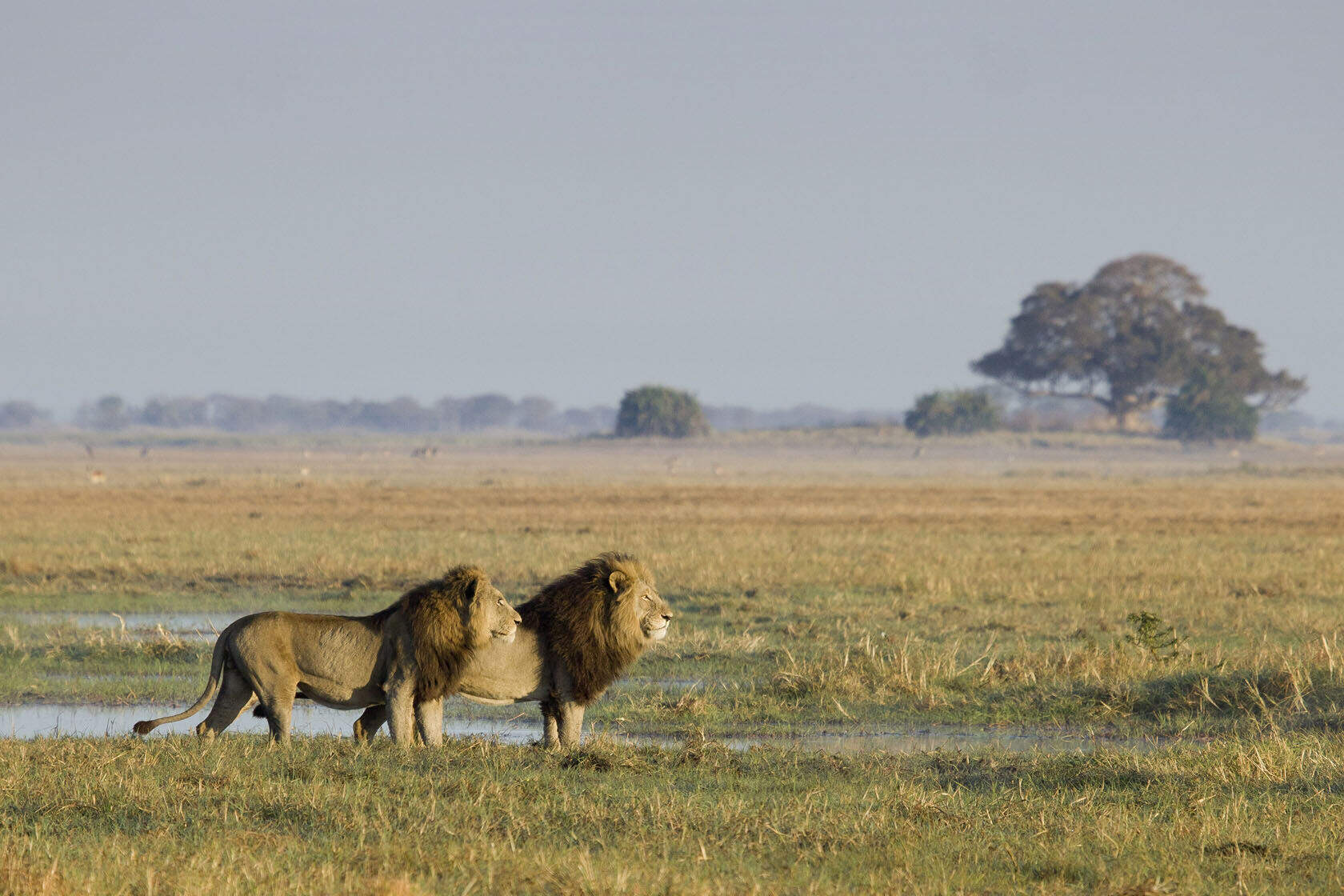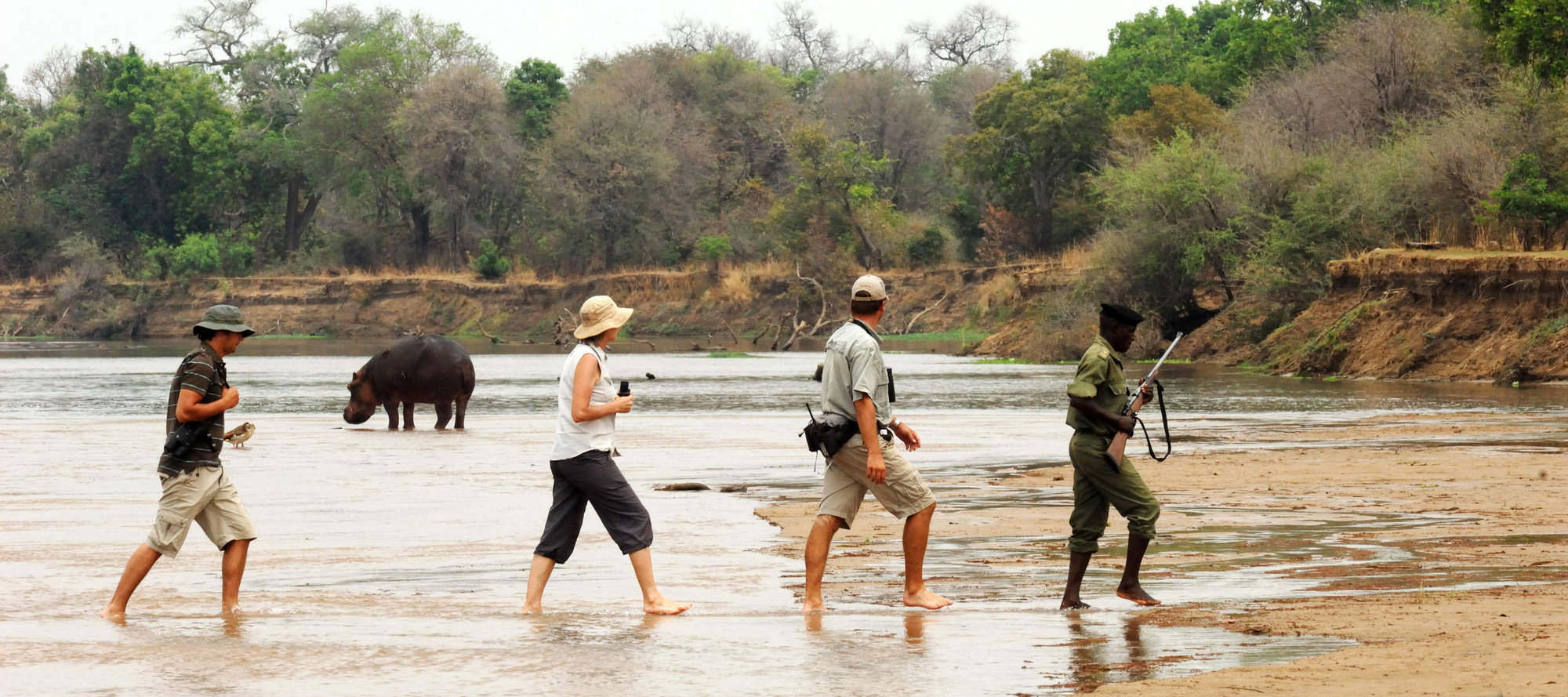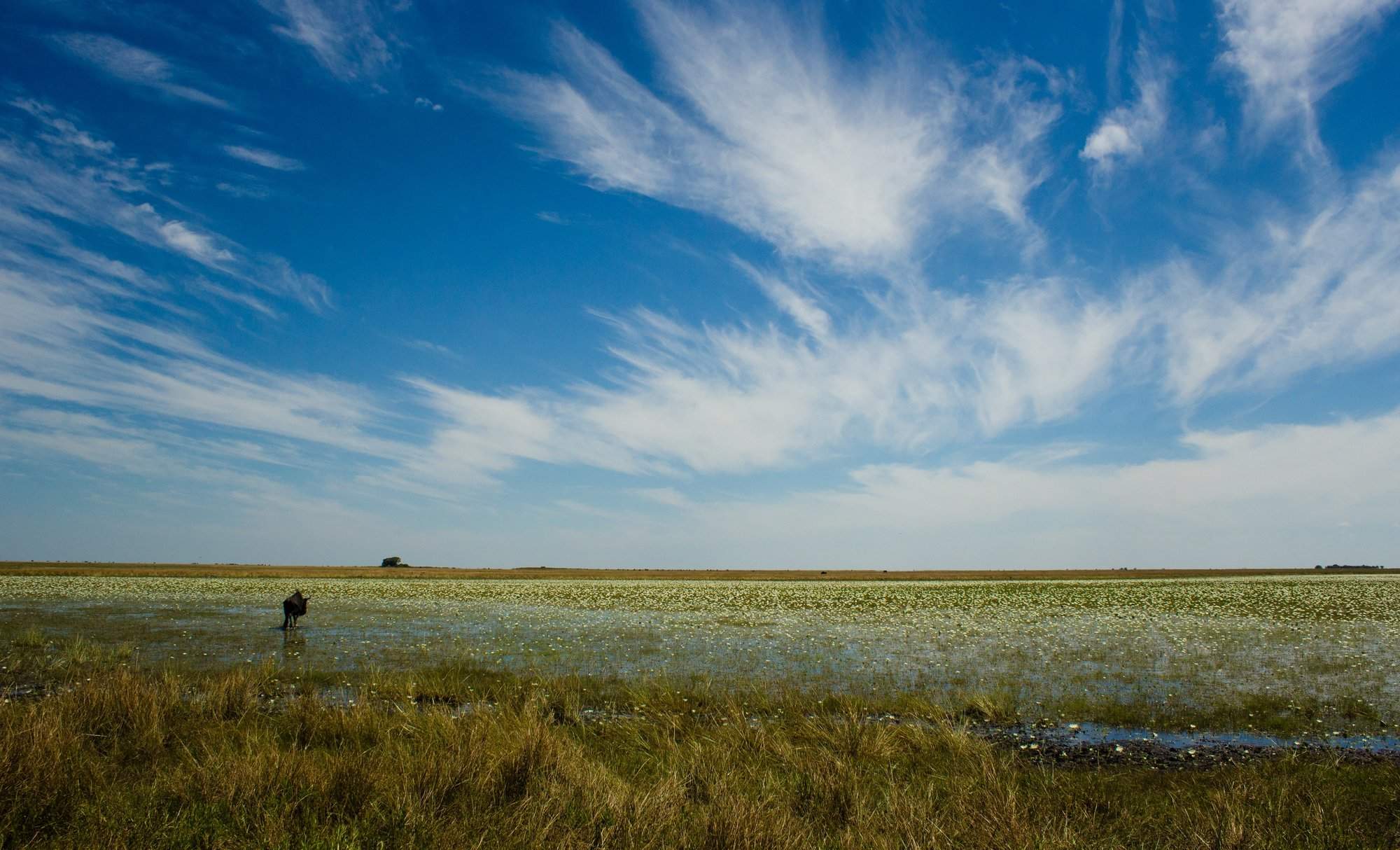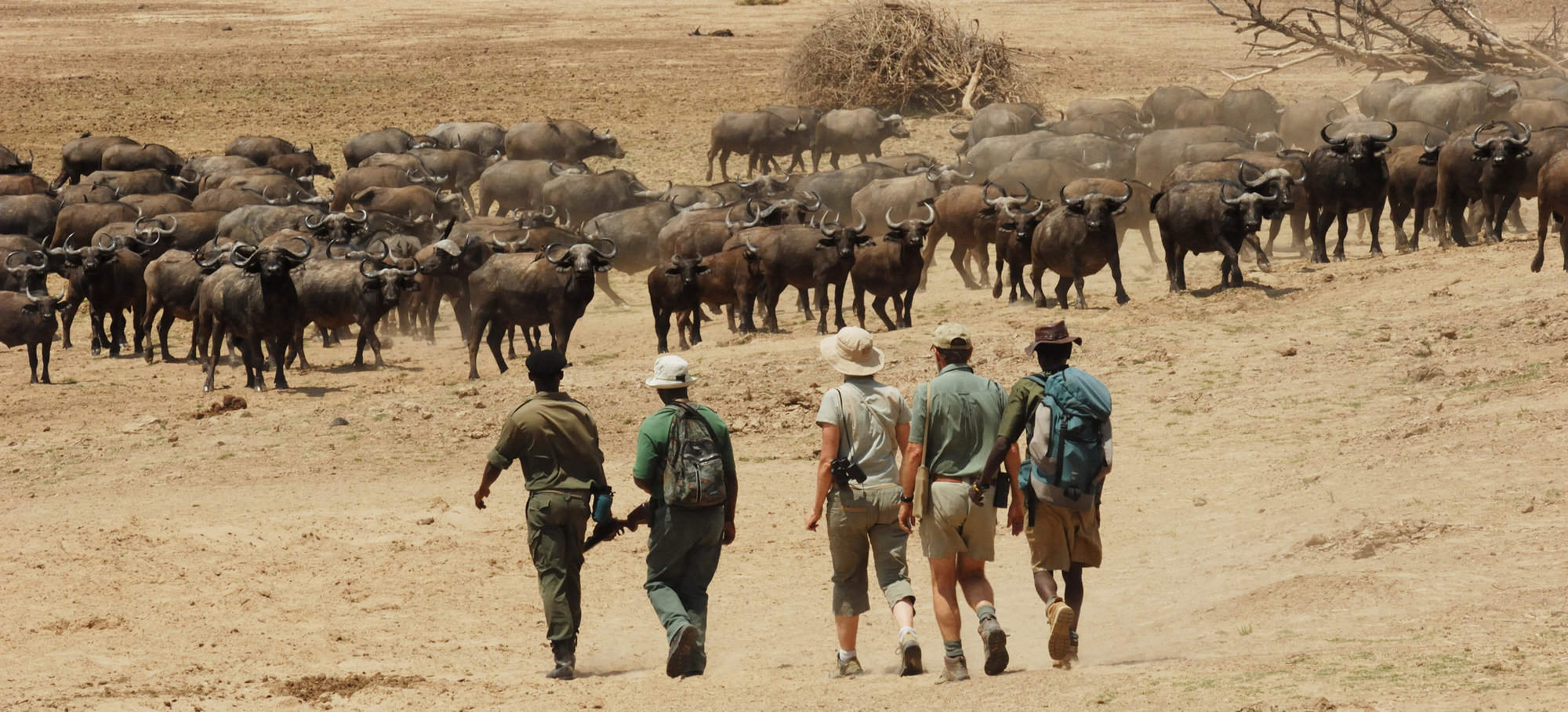Shoebill Island Camp: Our full report
Shoebill Island Camp has been renovated, offering increased comfort, good food and super guiding, thanks ...
... to a collaboration between Luangwa safari operator Remote Africa Safaris (well known for their superb camps: Tafika and Chikoko Trails in South Luangwa, and Mwaleshi and Takwela in North Luangwa) and the formidable conservation NGO African Parks.A small, simple tented camp, Shoebill Island stands under a grove of beautiful trees on the western side of a small, permanent island at the edge of Zambia's Bangweulu Wetlands - an enormous flooded wilderness of low islands, reed-beds and shallow lagoons, surrounded by a wide band of short-grass floodplains and forest beyond.
The wetlands are home to a great deal of wildlife – mammals and birds – as well as a scattering of local fishing communities. Bangweulu is a unique destination, fascinating for both wildlife enthusiasts and Africa-philes. Travel here is not always easy though, so it's not usually a first safari destination.
The camp is a bird-watching paradise, for seasoned twitchers and novices alike. Over 430 globally significant migratory & resident bird species can be found in the vicinity, with BirdLife International deeming it an ‘Important Bird Area and RAMSAR listing its status as a ‘Wetland of International Importance’.
Water birds abound in the lagoons: numerous ducks and geese, as well as flamingos, pelicans, spoonbills, storks, herons, kingfishers and ibises. Endangered wattled cranes stroll on the grass plains (in fact, 10% of the world’s population live here), whilst the star attraction for many remains the extraordinary prehistoric-looking shoebill. It’s often possible to visit the nearby Shoebill Chick Rearing programme, although viewing Shoebill is not guaranteed and is at the discretion of the African Parks researchers.
Though many visitors come for the birds, Bangweulu's wildlife can also be spectacular. Tens of thousands of black lechwe, - an attractive dark sub-species, endemic to the area - mass on the open grass plains, where you'll also find sitatunga, tsessebe, reedbuck, common duiker and plenty of oribi. Elephant and buffalo are also frequently seen, while hyena, leopard and side-striped jackal are occasionally present.
In 2020, cheetah, were reintroduced to the region after a 100 year absence, and appear to be thriving. Tracking these fast cats with the team from the carnivore programme is a great activity option at Shoebill Camp, and makes for some excellent photographic opportunities.
There's really only one place to stay in Bangweulu: Shoebill Island Camp. On a low tree island, on the southern edge of the wetlands, it's surrounded by spectacular watery panoramas.
Recently rebuilt, Shoebill Camp remains an old-style safari camp with simple, functional facilities, albeit comfortable ones, and a greater emphasis on the area’s wilderness and wildlife.
Raised on concrete and reed platforms, each of the four walk-in Meru-style tents has a small, shaded terrace and private, en-suite bathroom. The tents are simply furnished inside with cotton rugs on the canvas floors, a double or twin beds, covered by a mosquito net, solid timber furniture offering practical storage and a vibrant chitenge covered armchair.
The clean, ochre coloured bathroom is accessed through a canvas flap at the back of the tent, and has a hot-water rain shower, a flush toilet and a wide basin. There’s a circular mirror, bamboo ladder lined with towels and an array of eco-friendly bathroom products.
The heart of Shoebill Camp is the modest, open-front central area, simply decorated with old dugout canoes and traditional fishing traps from the area. With a cosy fireside lounge, where a pair of smart green sofas and colourful chitenge covered armchairs welcome laid-back relaxation and evening chatter, and a communal dining table, surrounded by stylish wicker armchairs and decorated with understated elegance, it’s a laid-back, social hub. The bar, deck and adjacent campfire are all popular hangouts given their excellent vista across the lagoon: a beautiful panorama and a super spot to watch for birds and herds of black lechwe.
From May to October, when the camp is open, game drives on the surrounding plains are possible to view the vast herds of black lechwe (there are over 50,000 in Bangweulu!) and buffalo, whilst the prolific birdlife and incredible shoebills can often be seen on canoe trips, in a banana boat or dugout mokoro canoe through the swamps. The best time to see the elusive shoebills is from late May, when the birds start nesting, to August, when all the nests have chicks. These trips are also a great opportunity for impromptu encounters with the friendly, local fishing communities. Walking safaris, are also possible here and good guiding is guaranteed under the current management team.
Our view
Shoebill Island Camp is a classic bushcamp: simple, comfortable and focused on its surroundings. Superb for serious bird enthusiasts and the perfect spot for seasoned safari aficionados looking for a completely different environment. It's offbeat, authentic and delivers super wildlife in a magical setting. Great in combination with Kasanka or Remote Africa's camps in the Luangwa Valley.
Geographics
- Location
- Northern Zambia, Zambia
- Ideal length of stay
- Two or three nights will give you enough time to do the activities at Shoebill. The main visiting season for shoebills is late May to August, when they can usually be seen from canoe trips.
- Directions
- Although it is possible to drive here in the dry season (a 5 hour bumpy ride from Kasanka), Shoebill Camp is best accessed by light aircraft. It has its own airstrip one kilometre from camp called Chimbwe or, when this is not in operation, guests will be flown to Inja Airstrip, approximately a 2.5 hour drive from camp.
- Accessible by
- Fly-and-Transfer
Food & drink
- Usual board basis
- Full Board & Activities
- Food quality
- Remote Africa Safaris have an excellent reputation for the food in their Luangwa camps, so we’d expect the cuisine here to be fresh and full of flavour under their management.
- Dining style
- Group Meals
- Dining locations
- Indoor and Outdoor Dining
- Further dining info, including room service
- No
- Drinks included
- Drinks are included except for premium brands
Special interests
- Birdwatching
- Shoebill Island Camp is an absolutely superb spot for birdwatchers, with over 430 globally significant migratory & resident bird species found in the Bangweulu Wetlands. 10% of the global population of Wattled cranes strut along the plains, whilst White cheeked bee-eaters, Rufous bellied herons, Lesser and Greater swamp warblers, Gallinule, a profusion of waterfowl and of course the wonderful shoebills, all make for great avian sightings!
- See ideas for Birdwatching in Zambia
- Cultural experiences
- Bangweulu Wetlands is a community-owned, protected area, striving to be a leading example of community-driven conservation. 50,000 people from six Chiefdoms in the area sustainably harvest Bangwuelu’s natural resources for their survival and livelihoods, and impromptu visits by canoe to their tiny, reed-thatched fishing villages are genuinely warm and insightful.
- See ideas for Cultural experiences in Zambia
- Wildlife safaris
- The Bangweulu area has not only super birdlife, but some excellent plains game - including over 50,000 beautiful and endemic black lechwe, often seen in herds of thousands, oribi, tsessebe and sitatunga. Buffalo herds can be seen grazing, side striped jackal and hyena roam the plains, and in 2020, cheetah were reintroduced to the region after a 100 year absence, and tracking these fast cats is now a terrific activity for visitors.
- See ideas for Wildlife safaris in Zambia
Children
- Attitude towards children
- Children over 8 years old are welcome at Shoebill Island Camp.
- Property’s age restrictions
- 8 years +
- Special activities & services
- None
- Equipment
- None
- Generally recommended for children
- Children over 8 years old are welcome at Shoebill Island Camp, but we do not usually recommended it for children under 12 years.
Our travellers’ wildlife sightings from Shoebill Island Camp
Since mid-2018, many of our travellers who stayed at Shoebill Island Camp have kindly recorded their wildlife sightings and shared them with us. The results are below. Click an animal to see more, and here to see more on our methodology.

67% success

33% success

33% success

33% success

0% success

0% success

0% success

0% success

0% success

0% success

0% success

0% success

0% success

0% success
Communications
- Power supply notes
- There is a communal charging area (220V) & a plug point in the room
- Communications
- There is no wifi or cell-phone signal at Shoebill Island Camp.
- TV & radio
- None
Health & safety
- Malarial protection recommended
- Yes
- Medical care
- There are two hospitals on the Great North Road at Chilonga and Chitambo. However for more serious emergencies it is possible to arrange a medivac from the airstrip at the camp.
- Dangerous animals
- High Risk
- Security measures
- There are no guards on site
- Fire safety
- There is a fire extinguisher in the kitchen
Activities
4WD Safari
Birdwatching
Canoeing
Guided walking safari
Extras
- Disabled access
- Not Possible
- Laundry facilities
- Laundry in included. Please note that this is done by hand so no valuable items should be included. For cultural reasons ladies underwear should not be included.
- Money
- There is no currency exchange available in camp
- Accepted payment on location
- Cash is accepted in US$ and Zambian kwacha
Other lodges in Northern Zambia
Alternative places to stay in this same area.

